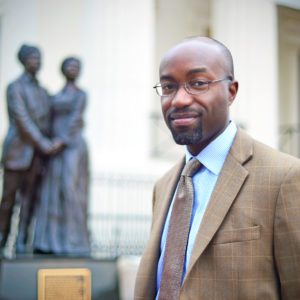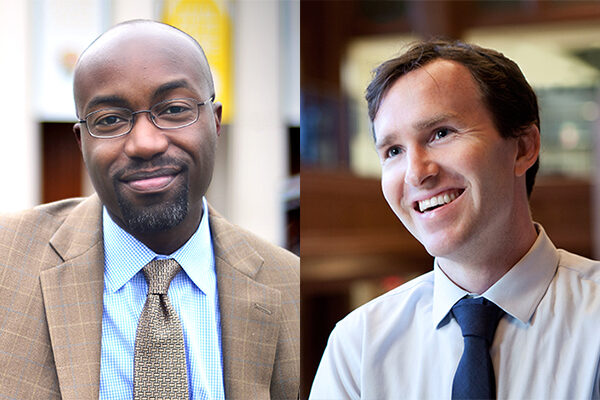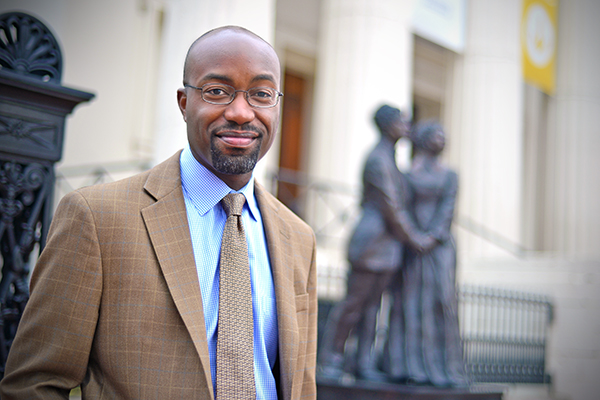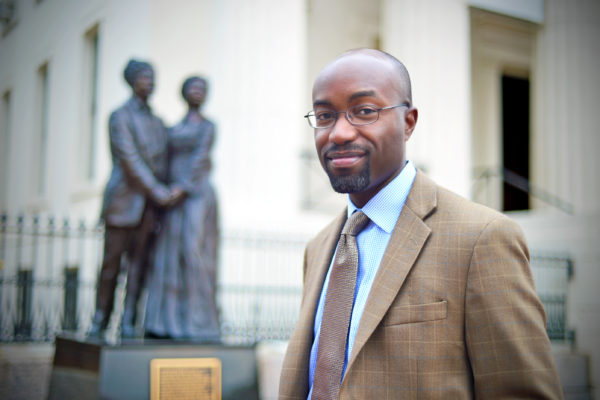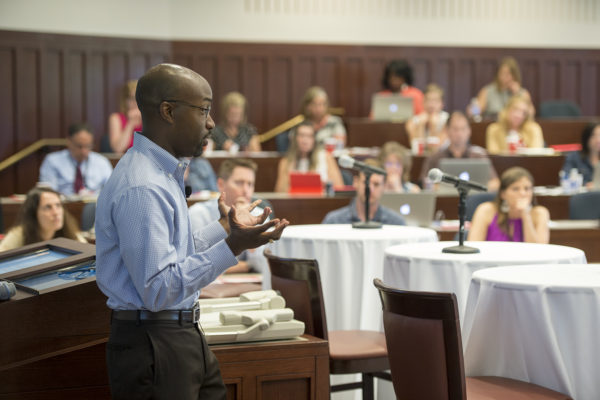Jason Purnell’s research focuses on how socioeconomic and sociocultural factors influence health behaviors and health outcomes and on mobilizing community action to address the social determinants of health. He currently leads Health Equity Works, the new name and expanded mission of the Brown School initiative previously referred to as For the Sake of All. Health Equity Works is committed to St. Louis and to translating data and research into collaborative community action to advance health equity. Their work in St. Louis continues and will expand in school health, economic opportunity, early childhood, quality neighborhoods and housing.
Purnell is trained in both applied psychology and public health. He is a faculty affiliate with the Prevention Research Center and the Center for Public Health Systems Science at the Brown School, a faculty scholar in the Institute for Public Health, and faculty director for Thriving Communities in the Center for Social Development.
Purnell is very active in the St. Louis community, including service on the boards of St. Louis University High School and the American Youth Foundation. He is also a licensed psychologist in the state of Missouri and a former director of community engagement with the United Way of Greater St. Louis.
